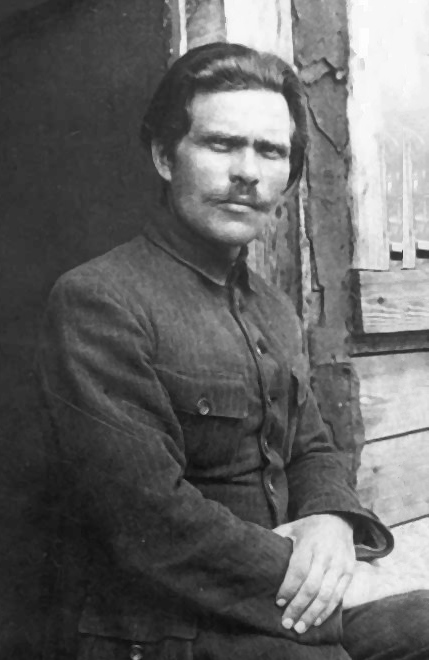"Organisational Platform of the Libertarian
Communists" (often known simply as the Platform) is a controversial
document published in 1926 by the anarchist group Dielo Trouda. The Platform
was signed by three well known anarchist militants: Nestor Makhno, Peter
Arshinov and Ida Mett. Two other signatories, Valevsky and Linsky, are
relatively unknown. The text itself was probably written by Arshinov.
During the Russian Civil War, Makhno had led a substantial armed movement in the Ukraine, the Revolutionary Insurgent Army, which actually referred to itself as "Makhnovist". While Makhno and his close collaborator Arshinov called themselves anarchists, the movement itself was a populist peasant insurrection. It came into conflict with both the Germans, the White Guards, the Ukrainian nationalists and (finally) the Bolsheviks. The Makhnovists did enter a number of temporary alliances with the Bolsheviks, but Lenin and Trotsky could hardly tolerate an independent movement, let alone one based on the peasantry. In 1921, after the Bolsheviks had turned on them, the Makhnovists were defeated. Somehow, both Makhno and Arshinov managed to escape to France, where they were later joined by Ida Mett, another anarchist who had left the Soviet Union. (She is the author of a well-known pamphlet on the Kronstadt rebellion.)
When the Platform was published in 1926, it immediately became the centre of heated controversy. Indeed, most leading anarchists condemned it, including Voline (who had also worked with Makhno in the Ukraine). Reading the Platform, it's not difficult to see why.
The Platform condemns individual anarchism, and explicitly defines anarchism as a movement for class struggle of the workers and the peasants. It calls for a united, disciplined and ideologically homogenous General Union of Anarchists led by an Executive Committee. In effect, the Platform calls for an anarchist version of the Bolshevik Party! True, it doesn't say so explicitly, but although the expressions differ, the "Union" is really a party with a Central Committee and some kind of democratic centralism. It also calls for the creation of a centralized revolutionary army. It's difficult to take its call for "the abolition of the state from day one" seriously. It's also hard to see how the national networks of workers' and peasants' cooperatives the Platform talks about could be set up without some kind of central power.
The anarchists who attacked the Platform did have a point. This was indeed a Bolshevized version of anarchism. It might seem ironic that those who proposed it, Arshinov and Makhno, had been forced out of Russia by the Bolsheviks. Why would they want to copy their methods? But perhaps it's not so strange after all. The Makhnovist movement plays an important role in anarchist political mythology, but how "anarchist" was the movement really? As already mentioned, the top leadership was anarchist, but the movement itself was essentially a peasant army, led by a central command with Makhno acting as a kind of charismatic leadership figure. In essence, the movement wasn't particularly "democratic". Makhno at one point shot and killed an opponent at a Makhnovist congress (admittedly, the opponent was the notorious warlord Grigoriev). When the Makhnovists captured the town of Ekaterinoslav, they gave the other political groups a stern warning not to interfere with the authority of "the working masses" (read: the Makhnovists). Of course, by defending private or co-operative property in land, the Makhnovists nevertheless gave the peasants more rights than the Bolsheviks, which explains their strong support in parts of the Ukraine. Still, Makhno was obviously not an anarchist in the mushy, anti-authoritarian, hippie sense of that word. This could explain his call for an organization of disciplined, collective action during his exile in France.
The subsequent fate of Arshinov is somewhat strange. He broke with anarchism and returned to the Soviet Union, apparently embracing the Communist message. As a final twist, Arshinov was executed during the Great Purges, accused of wanting to restore anarchism! Makhno, meanwhile, remained an anarchist and died in France in 1934. I suppose the Platform was his last stand.
As for the Platform itself, it has never been widely accepted by the anarchist movement, although a few "Platformist" groups have been formed in various nations.

No comments:
Post a Comment